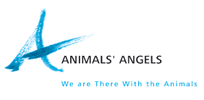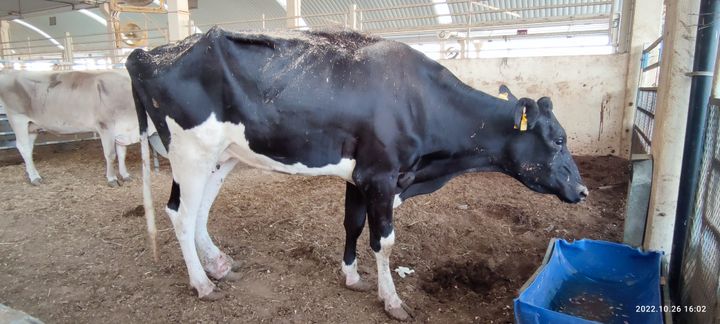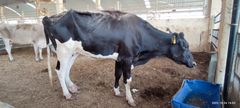
Qatar: Rich, Modern and Cosmopolitan – What about Animal Welfare?

Animal welfare is of no significance in Qatar. Animals are simply considered consumer goods. On the tourist market Souq Waqif, animals of all kinds and origin are for sale: Huskys, parrots, and turtles are stacked in small terrariums. Buyers typically use them as garden decoration, as a pastime or as toys for their children. Shortly afterwards, these animals are usually given away to the overflowing animal shelters. Horror stories circulate about the state-run animal shelter.
But the so-called 'farm' animals are no better off. Qatar imports them from almost all over the world. The animals arrive by truck, ship, or plane. Many of them end up at the slaughter markets. The animal handlers at the markets have no training. Animals are regularly injured or sick and left to their fate.
At one market, the Animals' Angels team meets Ulrike and Elisa, two cows from Germany. Both are miserable: Ulrike is extremely thin. Her ribs and hip bones are boldly visible. Her face shows severe pain. Elisa can hardly walk. Her right front leg is injured. Her overlong claws indicate neglect. The next day, the two cows are brought to the slaughterhouse. The veterinarian there is unaware of the glaring animal welfare problems.
Qatar wants to be a modern country, with good education and a high standard of living. Furthermore, it is one of the richest countries in the world, yet it has no animal welfare law. To meet its own high standards, Qatar cannot continue to ignore animal welfare.
Full press release: www.animals-angels.de/en/presse
Keywords
Contacts
Felix Maraun
presse@animals-angels.de
+49 6970798170
+49 1754742860
Animals’ Angels e.V.
Rossertstr. 8
60323 Frankfurt
Images

About Animals' Angels
Subscribe to releases from Animals' Angels
Subscribe to all the latest releases from Animals' Angels by registering your e-mail address below. You can unsubscribe at any time.
Latest releases from Animals' Angels
An ordeal that ends on a plate in a tourist resort: Live transports of calves to the Canary Islands10.8.2022 08:46:17 EEST | Press release
The calves slaughtered on the Canary Islands come e.g., from France, Spain, Germany, the Netherlands, Ireland, or Denmark. Some already have a long-distance transport behind them, because they were brought to northern Spain for fattening when they were only a few weeks old. Others are sent directly from their country of origin on one of the longest transports within the European Union (EU). The ferry crossing from the southern Spanish port of Cádiz alone takes at least one and a half days. But before that, the animals are sometimes already on the road for days. And once they arrive on the Islands, the odyssey continues: long waiting times due to poor organisation, reloading onto smaller trucks or island hopping from the main islands to one of the smaller Canaries. It is scientifically proven and beyond question that long-distance transports are extremely stressful and dangerous for the animals. The situation becomes particularly dicey when the temperatures are high. Due to the lack of
100 Reasons, 100 Demands – Animals' Angels provides facts for the revision of the EU's animal transport regulation9.9.2021 08:54:14 EEST | Press release
Animal welfare organization Animals' Angels is releasing its report "100 Reasons to Revise Council Regulation EC 1/2005 on the Protection of Animals during Transport". The report combines Animals' Angels' more than 20 years of experience in animal transport inspections worldwide with the results of scientific studies. In "100 Reasons", Animals' Angels systematically exposes the weaknesses of EU Regulation (EC) No. 1/2005 on the protection of animals during transport and makes over 100 specific demands for the current revision of the Regulation.